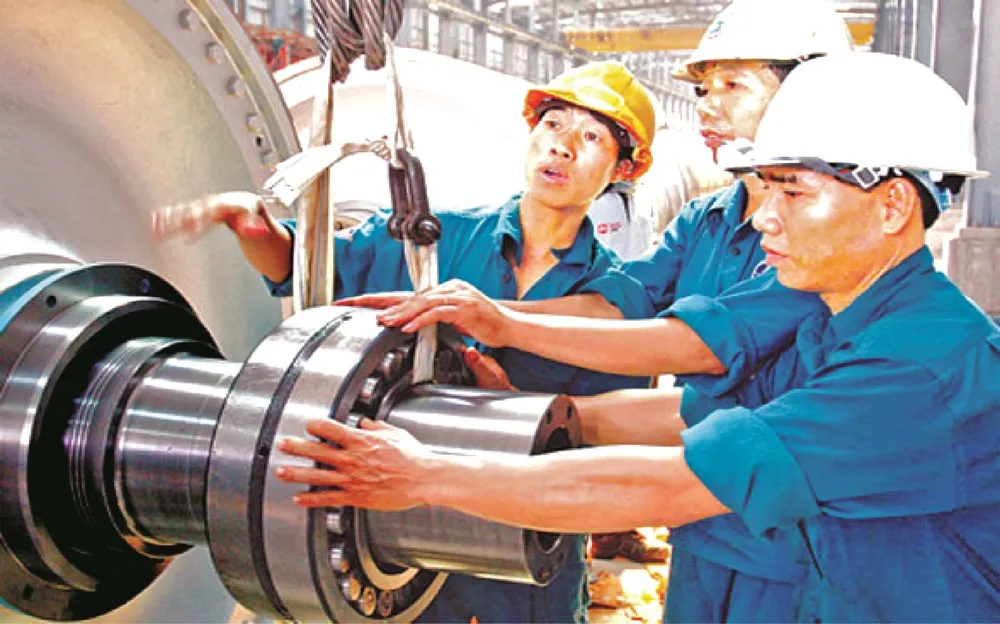
In a recent seminar that was held to find solutions in the process of equitization of enterprises, public non-business units, and divestment of state capital in enterprises, the Ministry of Finance said that at present the equitization of SOEs is still being delayed because of many pending obstacles. The most prominent obstacle is related to land issues.
These land issues have been the cause of a number of criminal cases in the past and have caused many local leaders and SOEs to appear in court after the equitization process has been completed, due to violations related to the transfer and conversion of land use purpose. The most common issue is that of determining the enterprise value lower than the actual value, causing much loss and waste.
Currently, the land valuation is being carried out in accordance with Decree 44/2014/ND-CP issued by the Government and effective since 15 May 2014. According to Article 4 of Decree 44 there are five methods of land valuation, namely, direct comparison, deduction, income, surplus land which is applicable to land plots calculated according to the land price with a value of VND 30 bln or more, and land price adjustment coefficient which is applicable to land plots valued at under VND 30 bln. However, these five methods do not have mandatory provisions for specific application on which method and which means they can be selected, while the same object can give five different valuation results.
Even the most commonly applied method of determining the surplus value according to the land price of enterprises today is also for different values. This method depends on two factors, namely, revenue from real estate development and real estate development costs. But both these factors are built on property assumption, comparison of incorrect sampling, different construction time, price, land allocation, investment rate, and compensation costs. This determination depends a lot on the subjective will of the actuary, which has impacted and changed the land price.
This has confused localities, public service providers, and SOEs when choosing a valuation method, and at the same time created a loophole for certain interest groups to take advantage and privatize public land for their own use. This is to say that a number of localities and businesses come to an understanding with each other and choose the most profitable option of lowest land price to make the most profit.
A story doing the rounds in the National Assembly in the last year also concerns valuation. The report of the State Audit Office (SAV) said that after entering into post-equitization audit of 45 state-owned enterprises, the value of enterprises increased by an average of 2.8 times. However, insiders all understood that this increase in value came from land revaluation after being cleared by the State Audit.
Mr. Hồ Đức Phớc, Minister of Finance, explained the inadequacies in land valuation saying that this ministry will coordinate with the Ministry of Natural Resources and Environment to make a draft proposal to submit to the Government for consideration, adjustment, and amendment of Decree 44. However, Prof. Dr. Đặng Hùng Võ, former Deputy Minister of Natural Resources and Environment, said that the Decree still needs to be adjusted and a number of articles and clauses in the Land Law 2013 need amendment and revision because Decree 44 is actually just the concretized part of the law. Therefore, in order to overcome the above shortcomings in land valuation, the law must be completely amended.
There have been many times when representatives of SOEs have complained of many problems when determining land value during the equitization process. Some business leaders also think that this is the easiest stage to manipulate but faces the most risks when the pricing policy is inconsistent and unclear. For instance, SOEs stipulate that when equitizing, the land must be priced in line with the market price, but the market price changes constantly, while the equitization process takes a long time, sometimes up to several years. During the equitization process, many enterprises have hundreds of plots of land that need to be sorted out, some of which are not approved because the authorities have to review the land use plan, so the time taken is even longer.
The stage that makes businesses bored after equitization phase is that of the audit stage. According to some business leaders, when equitizing enterprises, the value of land is according to one method, but when the State Audit agency steps in, they value land by another method. Even if it is the same method, due to the lack of quantitative land valuation method, they give different results, and the difference is vast. This is also the risk that SOEs often face after the equitization phase.
Currently, the Ministry of Finance is collecting opinions to finalize the proposal on separating land from the value of SOEs when equitizing. Accordingly, the Ministry of Finance proposes to amend the Land Law in the direction that when enterprises convert to equitization, they can only apply the form of the land lease with annual rental payment, and not change the purpose of land use after equitization. In case the enterprise has no need to use it, it must be returned to the State and will be compensated and supported in accordance with the law. Although there are a number of different views, this approach will help to select genuine investors that are aiming to reform and develop their enterprises.




















